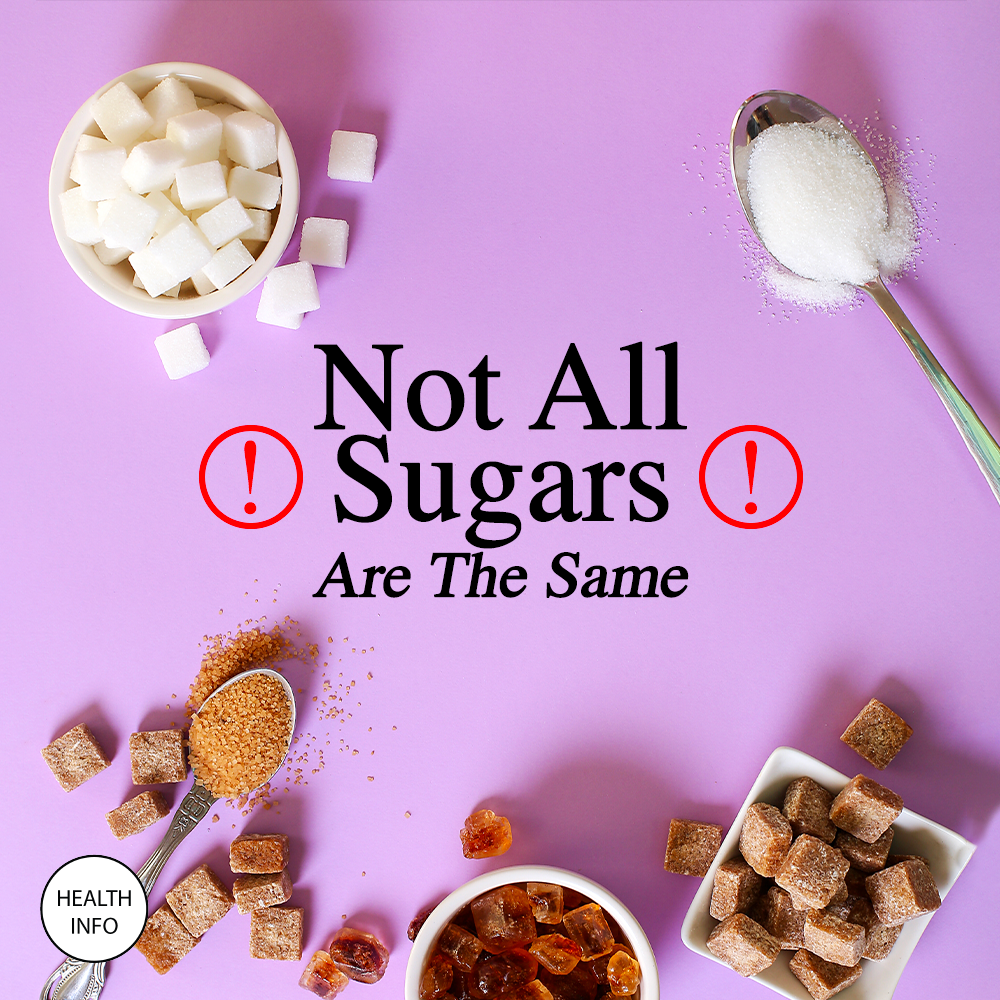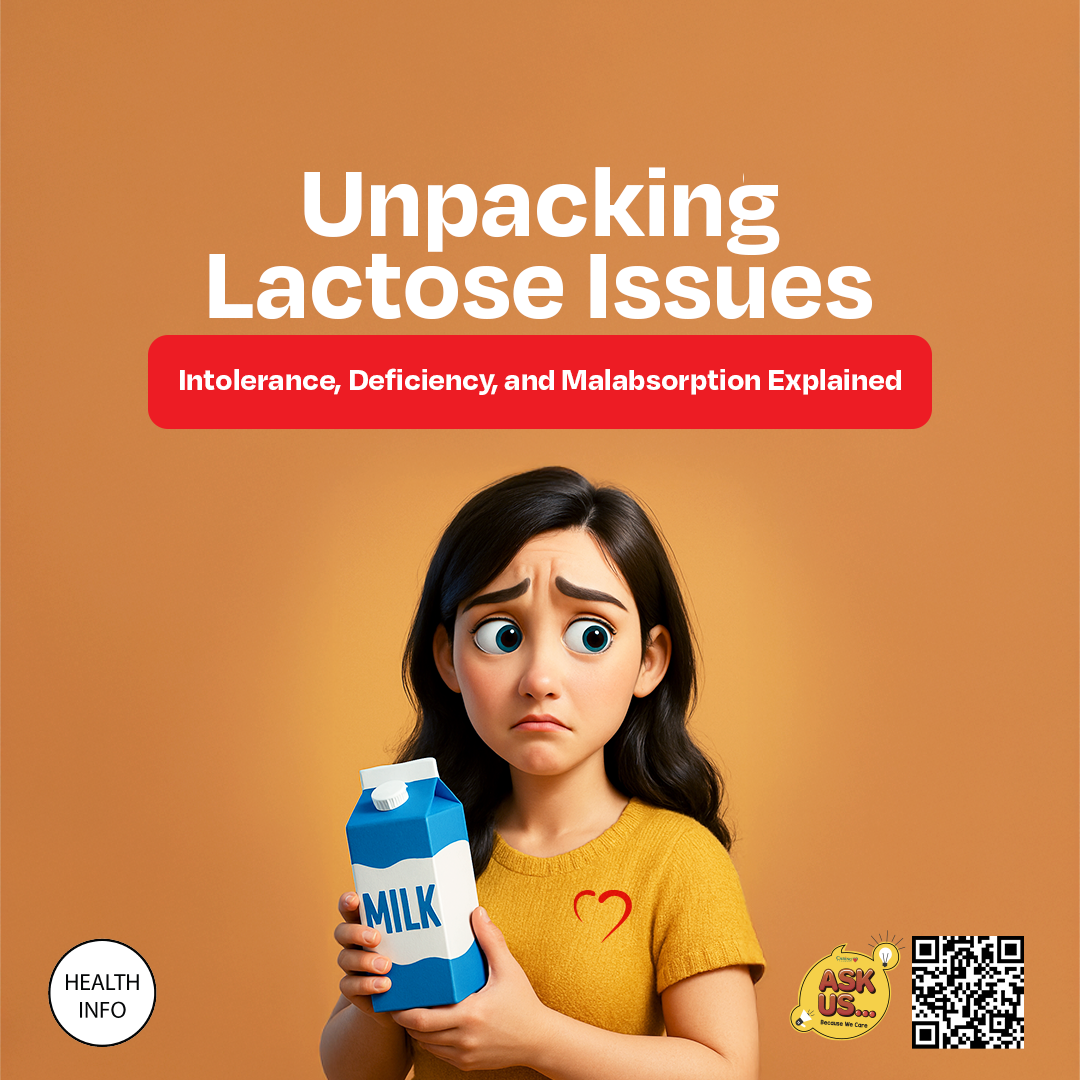
Sugar has a bad reputation for being the main culprit for causing many health problems such as diabetes. But just like any other nutrients, it is equally important for our bodily function when taken appropriately and sufficiently. It is our primary source of energy, and it helps to metabolize fats and prevent our body from converting protein into energy.1,2
Most of us get it from food or drinks that contain many different types of sugars. Here are some common examples:2,3,4
- Corn syrup. It is 100% glucose and is often used in soda, fruit snacks and bars.
- High fructose corn syrup, HFCS. It is a combination of a higher proportion of fructose and lower proportion of glucose.
- Fructose. Natural sugar from fruits.
- Sucrose, also known as white table sugar, is naturally found in honey, dates, sugar cane and sugar beet. It has an equal proportion of fructose and glucose. Often used as coffee sweeteners.
- Galactose. Natural sugar from milk.
- Maltose. Created by fermentation of grains.
Many may think that consuming whole fruits and processed fruits gives us the same nutrients. But in actual fact, eating whole fruits is always the better choice than packaged or processed food, that includes juices that we make at home.
Whole Fruits: Natural Sugar
Whole fruits are nutritious and jam-packed with vitamins, minerals and fiber that are important for our daily diet. Interestingly, each fruit contains different levels of natural sugars such as fructose, glucose and sucrose but fructose is the main sugar found in most fruits.5
That is why choices of fruits are especially important, especially for individuals keeping a close eye on their sugar level. They can opt for low-sugar fruits such as avocados, apples, strawberries and so on. High sugar fruits should still be consumed but at smaller portions, so watch out for bananas, lychees, mangoes and others.5,6
Whole Fruit VS Blended Juice
Juicing fruits is a popular and convenient way of getting your daily dose of fruits. It usually involves separating the extract from its seeds, pulps and fiber.7 However, this may cause a spike in sugar level and appetite because there is no fiber to slow down the absorption of sugar.8
Whole fruits contain fiber which is an important component of a healthy diet. It helps to reduce food cravings by making you feel full longer, manage blood sugar control, promote heart health and gut health by increasing growth good gut bacteria and ease bowel movements.9 That is why taking whole fruits instead of blending fruits into juices is a much better option.7,9
Added sugar and Their Dangers
Manufacturers in the food industry oftentime heavily add sugars in processed food such as packaged juices or canned fruits. Our body metabolizes these sugars more rapidly than fruit sugars. This may increase a person’s sugar and calorie consumption significantly. The dangers of consuming added sugar over a long period of time may cause health conditions such as obesity, type 2 diabetes, cardiovascular disease, cancer and many more.1,2
That is why we should never substitute whole fruits with processed fruits. Always check the label of the processed food, as some may contain hidden sweeteners or other flavoring agents that can greatly increase your sugar intake and calories. Go with labels that state “unsweetened”, “no added sugar”, or “packed in its own juice”.
Whole Fruits Rules!
All in all, the best source to get your daily intake of sugar is from whole fruits itself. They are nutritious and provide many health benefits such as reducing risk of heart disease, cancer, and mortality.10 Here are some tips to help you make choosing healthful fruits easier:8
- Prepare and bring along low-sugar fruit as snacks
- Eating whole fruits rather than drinking fruit juice or processed food
- Add fruits into your dishes such as salad, milk and cereal, or waffles and pancakes.
As for diabetics, it is recommended for you to discuss with your healthcare provider and create a healthy and balanced meal plan on the appropriate amount of fruits to be included into your diet. It is best to enjoy fruits regularly, though make sure to choose your fruits wisely!
References:
- Importance of Sugar in the Human Body. Livestrong. (Web accessed October 2023). Web link: https://www.livestrong.com/article/409694-importance-of-sugar-in-the-human-body/
- Are Certain Types of Sugar Healthier than Others? Harvard Health Publishing. Harvard Medical School. (Web accessed October 2023). Web link: https://www.health.harvard.edu/blog/are-certain-types-of-sugars-healthier-than-others-2019052916699
- Sources and Types of Carbohydrates and Sugar. Sugar Nutrition Resource Centre. (Web accessed October 2023). Web link: https://www.sugarnutritionresource.org/the-basics/sources-and-types-of-carbohydrates-and-sugar
- Is sugar in fruit bad for you? Medical News Today. (Web accessed October 2023). Web link: https://www.medicalnewstoday.com/articles/325550
- What sugars are in fruits and vegetables? Sugar Nutrition Resource Centre. (Web accessed October 2023). Web link: https://www.sugarnutritionresource.org/news-articles/what-sugars-are-in-fruits-and-vegetables
- Which fruits are less healthy, and which are better for you? Medical News Today.(Web accessed October 2023). Web link: https://www.medicalnewstoday.com/articles/unhealthy-fruits
- Juicing: Good or Bad? Healthline. (Web accessed October 2023). Web link: https://www.healthline.com/nutrition/juicing-good-or-bad
- Fruit vs. Fruit Juice: What’s the Difference? Stanford Childrens. (Web accessed October 2023). Web link: https://www.stanfordchildrens.org/en/topic/default?id=fruit-vs-fruit-juice-whats-the-difference-197-30060
- Fiber: The Carb That Helps You Manage Diabetes. Center of Disease Control. Web accessed October 2023). Web link: https://www.cdc.gov/diabetes/library/features/role-of-fiber.html
- Fruit and vegetable intake and the risk of cardiovascular disease, total cancer and all-cause mortality. International Journal of Epidemiology. Oxford Academic. (Web accessed October 2023). Web link: https://academic.oup.com/ije/article/46/3/1029/3039477
Latest Health Info
Unpacking Lactose Issues: Intolerance, Deficiency, and Malabsorption Explained
Ever wonder why some people, or even yourself, are suffering from lactose intolerance? Lactose, the primary sugar in milk and ...
Detect to Protect: Why Cancer Screening Matters
Cancer is a complex group of diseases characterised by the uncontrolled growth and spread of abnormal cells in the body. ...
Get Vaccinated: Protecting Lives, One Shot at a Time
Vaccines are among the most powerful tools in medicine, saving millions of lives by preventing serious diseases. From children to ...




